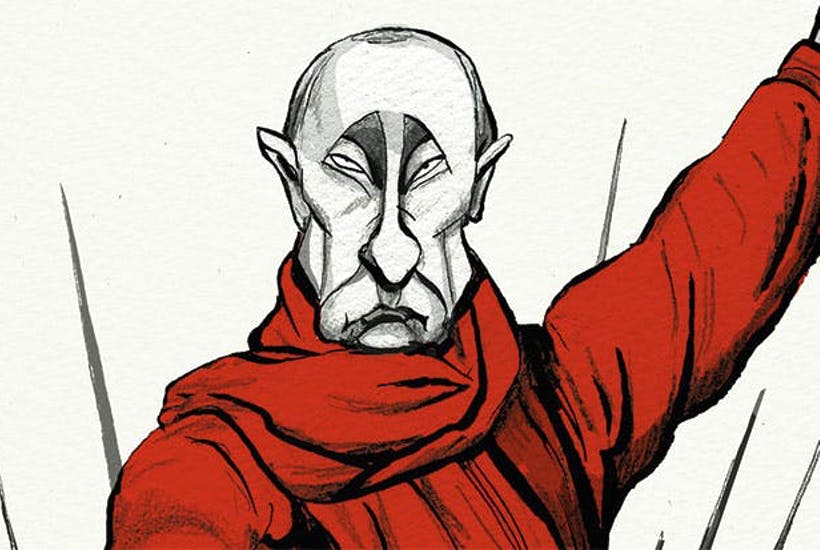The satisfaction is predictable. From the Kremlin’s point of view, the whole Brexit extravaganza is a gift, regardless of the eventual outcome. Putin’s strategy is essentially to divide, distract and demoralise the West, so that either we are sufficiently worn down to strike a deal that grants Russia the status he craves – essentially as hegemon of Eurasia and a fixture in any global negotiations – or else we are so fragmented, feuding and fatigued that he has a free rein.
Brexit is clearly setting people against each other: Leavers versus Remainers, Britain against Brussels, and depending on what happens, maybe Belfast against London, Scotland against England, we-wuz-robbed versus sold-a-fantasy. It is also quite simply a massive distraction, devouring the attention of the entire British state and drawing the attention of Europe at that. It is something of a demoraliser already. But is likely to be all the more problematic when (if) the deal is decided, as this could bring into question the orthodoxy of the EU’s appeal. Britain’s place in Europe post-Brexit is also far from assured and it is likely that some on the continent will hold the UK to account for any fallout associated with the country’s departure from the EU.
This mess helps explain why the Kremlin was keen from the get-go. Of course, this isn’t to say that there was some complex strategy behind Russia’s approach to Brexit; that’s not generally how the Putin regime works. Under Putin, it is made clear what would please the Kremlin. From there, all kinds of groups, individuals, agencies and chancers see what they can do to further this agenda. If they fail, the Kremlin is no worse off; if they succeed, they can expect to be rewarded. The result is myriad plots and cunning plans, often heading in different directions. But behind it, there is not necessarily a grand design.
After all, the aim is to spread mischief as much as anything else. Radicalise both extremes, squeeze the moderate middle, encourage Brexiteers to consider this an existential battle for the soul of Britain, tell the Scots that the Sassenach want to drag them to perdition, persuade the Irish that the Brits aren’t taking them seriously.
So the RT TV station and Sputnik news agency showcased intemperate voices of every timbre, the Russian ambassador egged Arron Banks on with dreams of lucrative gold deals, and by certain accounts small but useful amounts of what the Russians call “black account” untraceable cash helped support some partisan cheerleaders. The actual impact of all these activities is questionable. Although there is still no definitive evidence, there is a strong body of scholarly opinion that Russian meddling does not change opinions so much as heighten them.
So Putin cannot claim credit for Brexit, and Brits didn’t vote to leave the EU because of Russian bots, but Russia’s president will nonetheless be pleased that the debates over Brexit have only become increasingly toxic in the time since the referendum.
But what is less understand by those in the West is that many Russians remain perplexed and bewildered by Brexit. Why? In their own ways, the Russians are Anglophiles. It is not just that their oligarchs like stashing their dirty cash in British banks or fighting their legal battles in our courts. There is a considerable affection for the UK tinged with wary respect. In the Russian geopolitical imagination, Britain is a model of mannered efficiency. It is also a ruthless and cunning antagonist. Myths of the nineteenth-century ‘Great Game’ over India and Afghanistan blend into memories of British espionage in the Cold War to create a flattering picture of an Albion that is still reassuringly perfidious.
So time and again I am asked by Russians: ‘what has happened to the British?’ Is this all some deep and subtle maskirovka – deception – being stage-managed from Whitehall? Can the current spectacle of hapless amateurism, cynical careerism and bloody-minded self-destructiveness really be the Britain they felt they needed to undermine? Are we that much more effective at dividing, distracting and demoralising than the Kremlin? I haven’t the heart to tell them the truth.
Mark Galeotti is the author of We Need to Talk About Putin: Why the West Gets Him Wrong, and how to Get Him Right






Comments